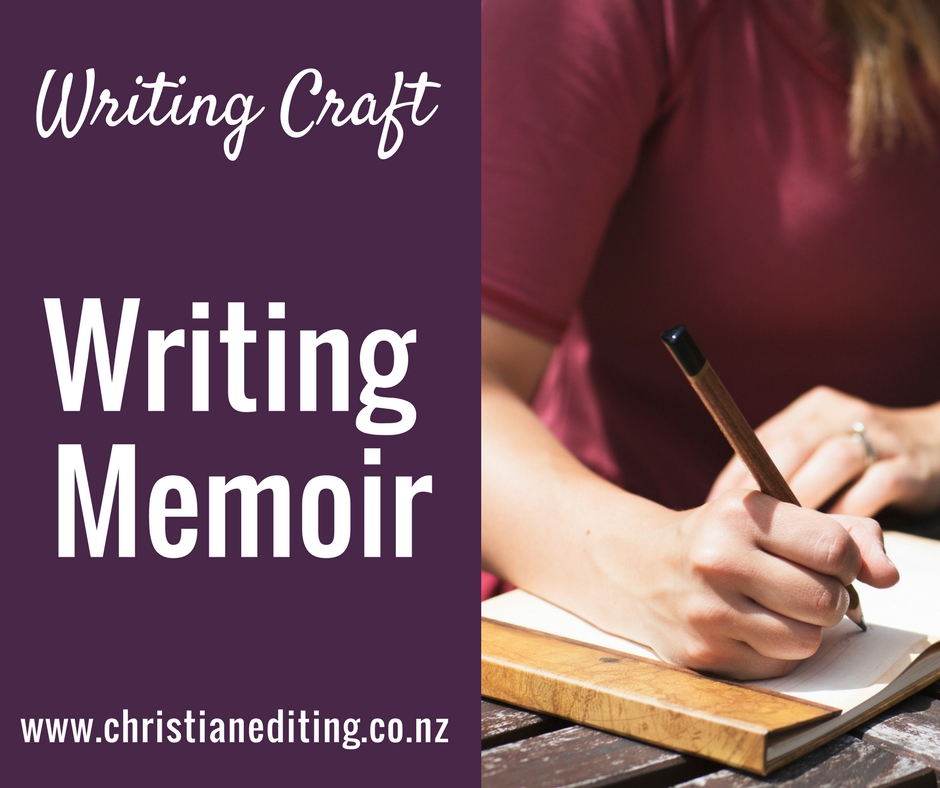I specialise in editing fiction, but I’ve recently had a few enquiries about memoir. I thought I’d share a few tips and resources on memoir today.
What is a Memoir?
Memoir is a non-fiction book about you, the author. It’s not your full life story—that would be an autobiography. And it’s not about someone else—that would be a biography.
Rather than telling your full life story, memoir has a single theme. For example, Soul Friend by JoAnne Berthlesen focused on JoAnne’s relationship with her spiritual mentor. Eat Pray Love by Elizbeth Gilbert focused on her one-year journey around the world following her divorce.
The key with memoir is to pick that narrow focus, and stick to it.
Who are you Writing For?
How you write a memoir depends largely on who you are writing for. If you’re writing purely for your family, then you can write pretty much what you want and how you want. It’s your book, so you can write it for yourself and your family.
But if you want to publish your memoir for a wider audience, you’ll need to write it for your readers more than for yourself. This means identifying and understanding your target reader, and writing a memoir that will appeal to those readers.
How do you Write a Memoir?
Memoir is part of a genre known as narrative non-fiction. That means the writing follows the same kind of narrative structure and writing style as a novel. Good memoir:
- Has a clear theme.
- Follows a clear structure.
- Includes conflict.
- Is told from a single point of view.
- Shows rather than tells the story.
- Focuses on the emotion.
- Starts in media res—in the middle of the thing.
- Avoids unnecessary backstory.
- Leaves out events and relationships that aren’t core to the main theme.
A memoir must also strive for truth and accuracy.
Memoir is not the place for mistruths or outright lies to make ourselves look better. It’s human nature to want to present ourselves in the best possible light, but our readers expect honesty. Even when it hurts.
And it can hurt. Many people who have been through difficult experiences write memoir because they have a desire to help others going through similar experiences. But you have to be in a healthy emotional state to write about difficult experiences such as abuse, cancer, depression, infertiity, or rape.
These things must be discussed in detail, with an emphasis on the feelings.
Memoir isn’t the place to gloss over the hard parts. Readers need and expect the truths of the pitfalls and failures as well as the successes. A memoir writer will need to go deep into their negative emotions. The more traumatic the events being discussed, the more difficult this will be. If this is you, you’ll need a strong support network to talk and pray you through the hard parts so you can be truthful and accurate for your future reader without taking yourself back to the dark place. To do anything less will be cheating your reader.
On the other hand, full truth and accuracy might be impossible. For example, you might recount a conversation between you and a friend or family member as you remember it. But the other person might remember it differently. Does that mean your account is wrong, or inaccurate? No, but it does mean you might face future problems with that person if they can’t see your point of view.
Who publishes memoir?
The sad truth is that most trade publishers aren’t interested in memoir unless they can see a lot of commercial potential. Unfortunately, this means trade publishers are only interested in memoirs written by people who are already household names through entertainment, political, sporting or workplace achievements (e.g. Oprah Winfrey, Hilary Clinton, or Tiger Woods), or through the development of an online platform (e.g. Ann Voskamp).
Sure, a vanity press will be more than happy to publish your memoir, but that’s because they see the commercial potential … the potential of getting you, the author, to pay them.
Check out my list of Christian fiction publishers—many of them also publish non-fiction.
Where Can I Find More Information?
Christian literary agent Rachelle Gardener has a list of recommended books for people looking to write memoir.
Reedsy have published an in-depth post: How to Write a Memoir: Top Tips from Bestselling Ghostwriters
Award-winning Australian author Cecily Thew Patterson has a free online course on writing memoir available from her website, The Red Lounge for Writers.
Cecily recommends memoir writers start by reading and working through the exercises in Story Genius by Lisa Cron. I agree. While Story Genius was written for novelists, the principles hold true for memoir as well.


